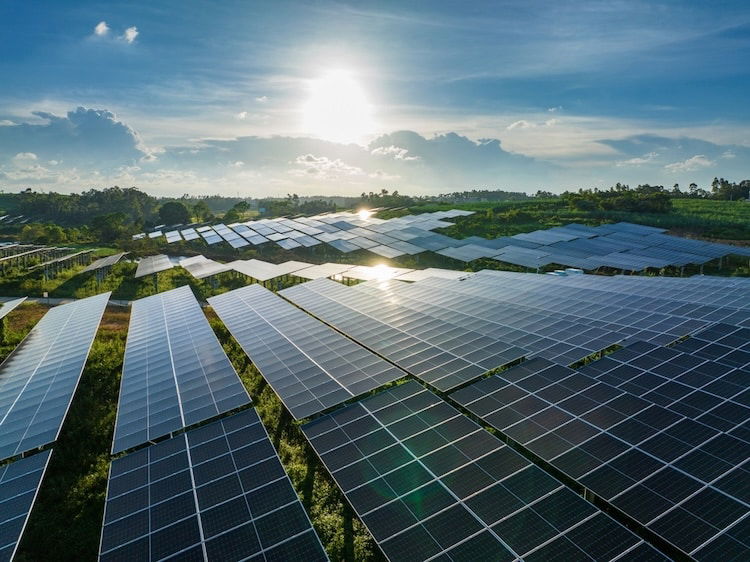Addressing the contradiction between economic growth and green transitions requires rethinking industrial relations to prioritise worker well-being, social equity, and sustainability.

Nearly two years ago, Nora Rathzel and Valeria Pulignano wrote a piece for Social Europe on the longstanding contradiction between growing and greening the economy and the role of industrial relations institutions, particularly trade unions, and processes such as collective bargaining. This contradiction underscored the difficult challenge of simultaneously growing and greening the economy, a topic rarely discussed in dominant political discourses. We believe that this crucial aspect of the climate change discussion remains overlooked, especially when considering the need to incorporate worker well-being and social equity as key objectives of just transitions.
Current environmental policies fall short in fully accounting for the environmental impacts generated across each stage of the global value chain, in both the Global North and Global South, while also neglecting the broader social consequences, such as job losses, community disruption, ill-equipped social protection measures, and ecological damage, such as deforestation and pollution, associated with these processes.
Why is it important to consider these impacts? What can industrial relations processes and institutions do about it?
The importance of considering the environmental impacts of greening and growing the economy for industrial relations institutions and processes lies in the need to ask whether they are equipped to address the challenges faced by the world of work that stem from climate change and climate policy. Our answer is both YES and NO.
The YES answer holds when viewing the redistributive logic that industrial relations institutions and processes can follow, aiming to reduce power asymmetry in the relationship between labour and capital. These mechanisms can achieve this by re-embedding the economy (i.e. market effects) into society (i.e. social relationships). A typical example is the standard employment relationship, which reduces employees’ dependence on the employer by granting them rights to social protection, security from direct dismissal, and income protection through collective bargaining, as well as unemployment, sickness, and other social welfare benefits.
Conversely, the NO answer holds when this redistributive logic is based on the economic classism of economic growth, such as the goal of full employment, without attention to other dimensions such as socially-based growth. Indeed, this is why some studies have pointed to the need to move beyond ‘economic growth’ as the only condition for redistribution. This would entail moving beyond productivism towards a recalibrated relationship between industrial production and social reproduction. Climate change provides an even greater urgency for us to achieve this point of rebalance.
Let’s be clear: the right to work is a core principle, but we all also have a right to good quality work, which encompasses the work and wider life of families and communities at large. Economic growth constantly demands the use of more energy and materials, including raw materials extracted from the earth to make everything we use, as well as the land and water needed to extract those resources and produce machines, tools, products, housing, and food.
To date, there is an absence of empirical evidence showing that, by producing more efficiently, we can decouple economic growth from an increase in material use, greenhouse gas emissions, and water and land use. On the contrary, history demonstrates that every time a production process becomes more efficient, it leads to increased production and, in turn, to the use of more materials and energy. A contradiction thus exists between economic and green growth, and industrial relations institutions and processes have struggled to resolve it simply because they tend to focus only on the economic and productivity logic of growth. Moreover, this logic is inherent in indicators of good quality jobs (e.g. their ‘coverage by collective bargaining’; however, high coverage does not automatically equate with the provision of good jobs and a good life).
Furthermore, the contradiction is reflected in trade unions’ strategies for a just transition, which refers to the meeting of climate goals by ensuring all of society, including workers, contributes fairly and is included in progress toward a net-zero future. Unions care for their members. Likewise, however, they feel the pressure arising from a seeming lack of choice between representing the interests of local workers against those of third-country workers who are often geographically distant and protecting nature, which in turn nurtures us.
While we understand the forces of dominant cultures, we must also find and appreciate the power of alternative, often indigenous, approaches to industry and nature, and their manifestation and meaning on a daily basis. As researchers and activists, we also need to strengthen the potential to engage with those alternatives in order to reach and sustain an ecologically and socially just way of living for all.
Would this require us to rethink the redistributive function of industrial relations in a post-growth era?
We have reached a critical juncture at which we must reconsider the dominant culture(s) that underpin the capitalist system of production so that a redistributive and solidaristic culture at the core of industrial relations is respected.
As indicated, the notion of ‘growth’ is not merely an economic category; it can be far-reaching and deeply ingrained in everyday life. The former conception is embedded in a capitalist system of production that follows a hegemonic approach prioritising competition and individualisation. It needs to be replaced by an ethos of well-being through conviviality and reciprocity. Many people in Europe are unable to attain decent social and economic thresholds today. An exclusive focus on economic growth is not the way to end poverty in the region or globally; we must prioritise the elimination of inequality while promoting sustainable economic growth. This is a nexus point at which industrial relations institutions and processes, such as trade unions and collective bargaining, can find their revitalisation.
Does this mean that we need to rethink the redistributive function of current industrial relations institutions in a post-growth era?
We would say NO. Rather, it means that we need a stronger industrial relations function that takes into account the existing wealth in the world; the key problem concerns how it is distributed, where and how it is produced, and at what cost to people and the planet. There is much scope for trade unions and collective bargaining processes to operate globally and transnationally; indeed, it is vital that they do this more. This involves adopting a transnational approach that traverses the boundaries of ‘work’. Work is ‘relational’; someone’s labour needs to be seen not in a siloed fashion but in relation to the work of others. This perspective is reflected in the idea of overcoming the dichotomy between paid (public sphere) and unpaid or socially reproductive (private sphere) work. Moreover, the paid-unpaid work relationship is dynamic—it is reconfigured whenever transformative periods occur due to technological, demographic, geopolitical, social, and economic crises—like those in which we are currently enmeshed.
Industrial relations institutions and processes should thus consider ‘growth’ not only in economic terms but as something deeply social and ingrained in everyday life and dynamic. We believe in the capacity of industrial relations and its actors to help fix what has been broken by the non-existence of a cohesive and sustainable approach to work, climate change, and climate policy.



